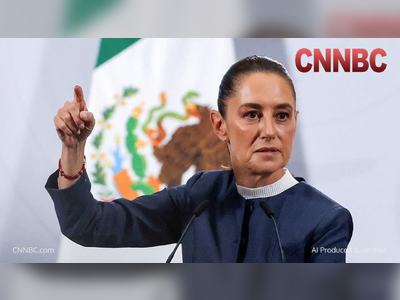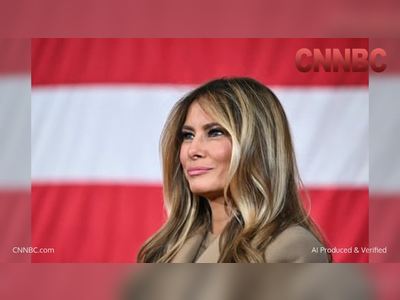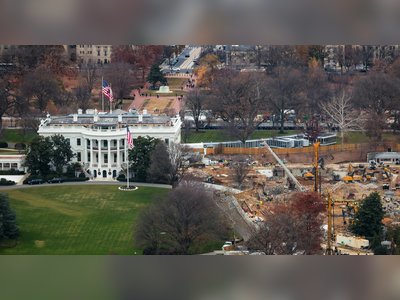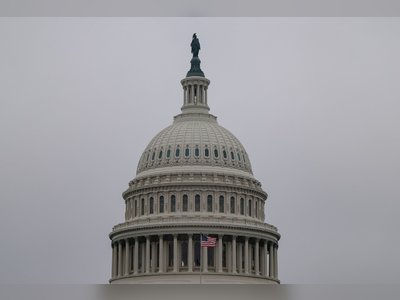Trump’s Festive Gambit: A Debt Ceiling Crisis Looms for the GOP
As Christmas nears, Trump's rejection of a bipartisan plan places Republicans in a precarious political predicament, challenging their unity and strategy.
In a characteristically dramatic twist, former President Donald Trump has rejected a bipartisan agreement intended to avert a looming government shutdown, throwing the U.S. political landscape into turmoil mere days before Christmas.
At the heart of this impasse is Trump's demand to couple government funding with a controversial provision to raise the debt ceiling—a maneuver known to elicit disdain from many within his own party.
The timing could not be more strategic, or indeed, more perilous: a political time bomb set to detonate at the peak of the holiday season.
This move, emblematic of Trump’s enduring influence, underscores not just a contest over federal funding, but a broader test of allegiance within the GOP to his ideology.
Republicans now find themselves ensnared in a formidable dilemma.
On one hand, aligning with Trump’s direction is essential to maintain party cohesion; on the other, dismissing a bipartisan approach risks alienating a public increasingly dependent on federal support, particularly in times of crisis.
It is a precarious tightrope of ideology and pragmatism.
Democrats have swiftly seized upon the discord, painting this deadlock as detrimental to working-class Americans—a narrative that gains traction given the bipartisan proposal’s inclusion of vital disaster relief funds.
As the public lens intensifies, the role of Elon Musk, a titan of industry and the current head of the Department of Government Efficiency, finds itself uniquely illuminated.
Musk's denunciation of the plan as excessive spending resonates powerfully, adding a business dimension to an already complex political equation and fortifying conservative calls for reduced governmental scale.
The standoff highlights the potential chaotic dynamics Republicans might encounter should they succeed in their aspirations to control both Congressional chambers and the Presidency.
If consensus on routine funding is elusive, the viability of more substantial legislative ambitions stands at risk.
The wait for Trump’s endorsement—symbolized by a hesitant Senator Johnson—serves as a stark reminder of where true power and authority within the party are vested.
Senate Majority Leader Chuck Schumer’s call for prompt resolution may be lost amid the cacophony of partisan dissonance, yet it is a necessary plea in the face of such political brinkmanship.
The situation poses a critical lesson in the art of governance and the consequences of neglecting effective political strategy.
In this environment, the audience is urged to reflect on where genuine leadership resides, and how the decisions of today shape the governance possibilities of tomorrow.
The words of history resonate: 'In politics, nothing happens by accident.
If it happens, you can bet it was planned that way.'
At the heart of this impasse is Trump's demand to couple government funding with a controversial provision to raise the debt ceiling—a maneuver known to elicit disdain from many within his own party.
The timing could not be more strategic, or indeed, more perilous: a political time bomb set to detonate at the peak of the holiday season.
This move, emblematic of Trump’s enduring influence, underscores not just a contest over federal funding, but a broader test of allegiance within the GOP to his ideology.
Republicans now find themselves ensnared in a formidable dilemma.
On one hand, aligning with Trump’s direction is essential to maintain party cohesion; on the other, dismissing a bipartisan approach risks alienating a public increasingly dependent on federal support, particularly in times of crisis.
It is a precarious tightrope of ideology and pragmatism.
Democrats have swiftly seized upon the discord, painting this deadlock as detrimental to working-class Americans—a narrative that gains traction given the bipartisan proposal’s inclusion of vital disaster relief funds.
As the public lens intensifies, the role of Elon Musk, a titan of industry and the current head of the Department of Government Efficiency, finds itself uniquely illuminated.
Musk's denunciation of the plan as excessive spending resonates powerfully, adding a business dimension to an already complex political equation and fortifying conservative calls for reduced governmental scale.
The standoff highlights the potential chaotic dynamics Republicans might encounter should they succeed in their aspirations to control both Congressional chambers and the Presidency.
If consensus on routine funding is elusive, the viability of more substantial legislative ambitions stands at risk.
The wait for Trump’s endorsement—symbolized by a hesitant Senator Johnson—serves as a stark reminder of where true power and authority within the party are vested.
Senate Majority Leader Chuck Schumer’s call for prompt resolution may be lost amid the cacophony of partisan dissonance, yet it is a necessary plea in the face of such political brinkmanship.
The situation poses a critical lesson in the art of governance and the consequences of neglecting effective political strategy.
In this environment, the audience is urged to reflect on where genuine leadership resides, and how the decisions of today shape the governance possibilities of tomorrow.
The words of history resonate: 'In politics, nothing happens by accident.
If it happens, you can bet it was planned that way.'












